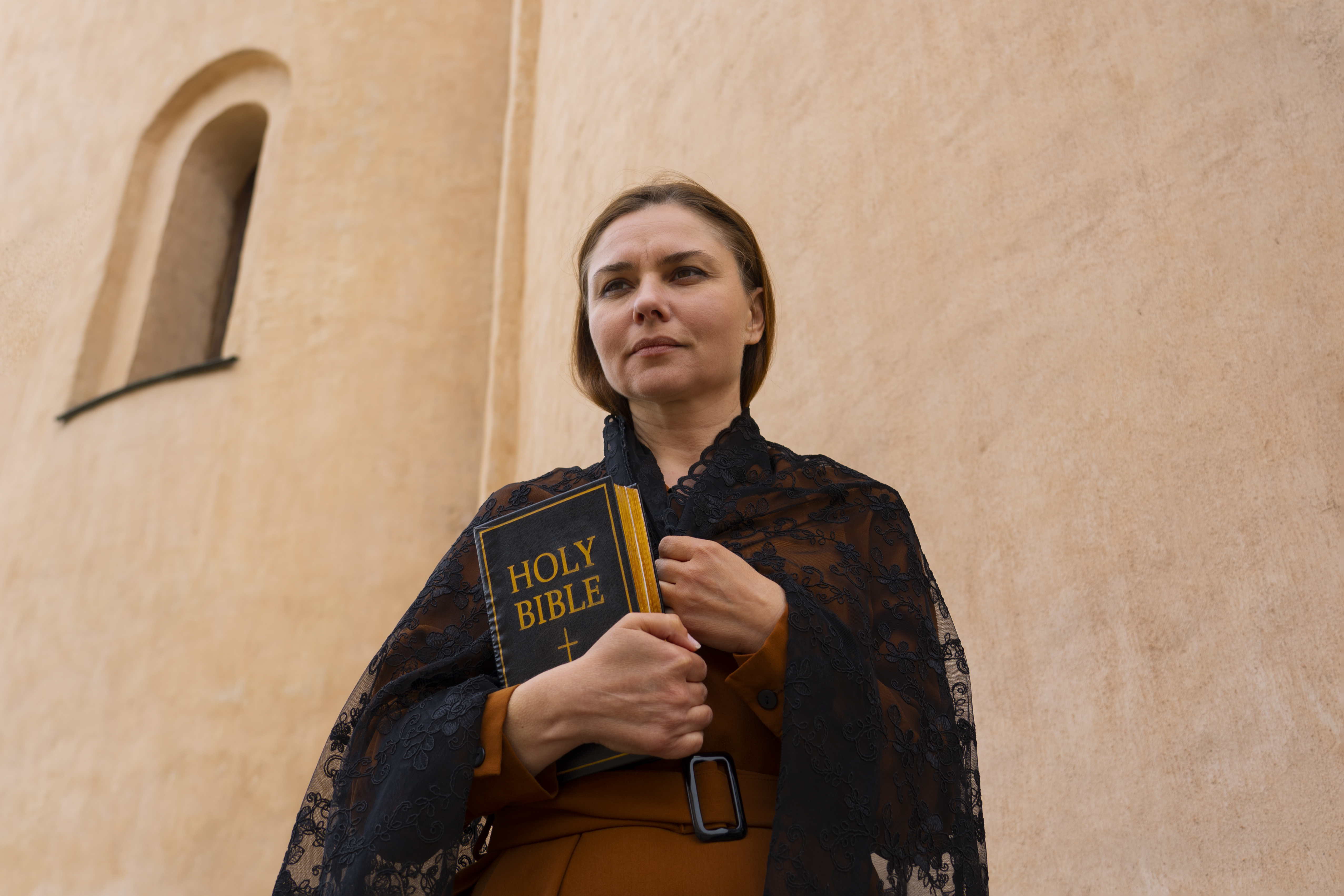

Introduction to Kingdom Capital Stewardship
Contents
- 1 Introduction to Kingdom Capital Stewardship
- 2 Biblical Perspective on Stewardship
- 3 Scholarly Perspectives on Stewardship
- 4 Scholarly Perspectives on Stewardship
- 5 Creating a Financial Plan
- 6 Allocating Funds to Giving
- 7 The Role of Savings in Stewardship
- 8 Investing in Kingdom Initiatives
- 9 FAQ on Stewardship and Kingdom Capital
- 10 Conclusion: Faithful Stewards of God’s Wealth
In the words of Charles Spurgeon, “We are not owners, but trustees of God’s wealth.” This profound insight sets the stage for understanding the concept of Kingdom Capital. Kingdom Capital is more than just money or assets; it is a sacred tool entrusted to us for advancing God’s purposes on Earth. Viewing our finances through this lens transforms how we interact with our resources.
Many of us tend to see money as an end in itself. However, the real power of wealth lies in its potential to effect positive change. When we treat money as a tool, we unlock the ability to serve others, spread the Gospel, and support Kingdom initiatives. This shift in perspective aligns with the biblical teaching found in 1 Corinthians 4:2, which emphasizes the necessity of being faithful stewards of what has been entrusted to us.
Spurgeon’s influence on this topic is significant. He challenges us to rethink our relationship with wealth. Instead of clinging tightly to our resources, we are called to manage them wisely, recognizing that we are merely custodians of what ultimately belongs to God. This understanding compels us to act with intention and purpose in our financial decisions.
The journey of stewardship begins with acknowledging our role as caretakers of God’s resources. As we delve deeper into the principles of Kingdom Capital, we will explore how to create a financial plan that honors God’s intentions, ensuring that our money serves His Kingdom.
Biblical Perspective on Stewardship
To understand stewardship from a biblical viewpoint, we turn to the powerful words of 1 Corinthians 4:2: “Moreover it is required in stewards, that a man be found faithful.” This verse encapsulates the essence of stewardship—faithfulness. The Apostle Paul emphasizes that being a steward is not about ownership, but rather about managing what belongs to another. As stewards of God’s wealth, our primary duty is to remain faithful in our responsibilities.
In this context, money is viewed not as an end in itself, but as a tool for fulfilling God’s purposes. The Bible teaches us that resources should serve the greater good, advancing His Kingdom rather than satisfying personal desires. When we start seeing money as a means to an end, we shift our focus from accumulation to impact.
This perspective transforms our relationship with wealth. Instead of hoarding resources, we are encouraged to invest them in ways that reflect God’s love and generosity. This aligns perfectly with Spurgeon’s insights on stewardship. He reminds us that we are merely custodians of God’s resources, meant to use them wisely and effectively.
As we embrace this biblical view, we find ourselves called to a higher purpose. Our financial decisions should reflect a commitment to stewardship that prioritizes God’s Kingdom above our own interests. In the following sections, we will explore practical steps to align our financial plans with these biblical principles, ensuring that our stewardship is both faithful and impactful.
Scholarly Perspectives on Stewardship
In his influential work, ‘The Divine Conspiracy’, Dallas Willard presents a transformative view of stewardship that resonates with the teachings of Charles Spurgeon. Willard asserts, “The kingdom of God is not just about what we do with our money, but how we live our lives in alignment with God’s purposes.” This perspective emphasizes that stewardship goes beyond mere financial management; it involves a holistic approach to life that reflects our relationship with God.
Willard argues that true stewardship requires an understanding of our identity as God’s children. This viewpoint aligns closely with Spurgeon’s assertion that we are not owners but trustees of God’s wealth. Both emphasize that our resources are not merely for personal gain but are entrusted to us for a greater mission.
Modern theology increasingly acknowledges the importance of stewardship in shaping our faith. It invites believers to view their possessions as tools for advancing God’s Kingdom. This shift in perspective encourages a lifestyle of generosity and service, echoing both Willard’s and Spurgeon’s teachings.
While Spurgeon focused on the practical implications of stewardship, urging his followers to give generously, Willard delves deeper into the spiritual underpinnings. He challenges us to examine the motivations behind our financial decisions. Are they rooted in self-interest or in a desire to serve God and others?
As we explore these scholarly perspectives, it becomes clear that effective stewardship involves a combination of practical action and spiritual mindfulness. By integrating Willard’s insights with Spurgeon’s practical wisdom, we can cultivate a more profound understanding of our role as stewards in God’s Kingdom.
Scholarly Perspectives on Stewardship
Dallas Willard, in his profound work ‘The Divine Conspiracy’, offers a compelling perspective on stewardship that echoes the sentiments of Charles Spurgeon. Willard states, “Stewardship is not about a financial transaction; it is about a transformational relationship with God.” This quote underscores the essence of stewardship as a spiritual journey rather than merely a financial obligation.
Willard emphasizes that stewardship transcends the act of managing resources. It is about living in alignment with God’s purposes, integrating our finances into a life fully committed to Him. This idea resonates deeply with Spurgeon’s belief that we are not owners but trustees of God’s wealth. Both thinkers encourage a mindset that views all possessions as tools to fulfill God’s Kingdom work.
In modern theology, the role of stewardship is increasingly significant. It invites believers to recognize their resources as opportunities for service and impact. This contemporary understanding encourages a shift from seeing stewardship as a burden to embracing it as a privilege. By aligning our financial decisions with Kingdom goals, we reflect God’s generosity.
While Spurgeon often focused on the practical aspects of giving and financial responsibility, Willard brings in a deeper spiritual context. He challenges us to examine our motivations: Are we giving out of obligation or out of love for God and others? This question invites introspection and growth.
As we engage with these scholarly perspectives, we find a rich tapestry of insights that guide us in our stewardship journey. By blending Willard’s spiritual depth with Spurgeon’s practical wisdom, we can cultivate a more holistic approach to managing Kingdom capital.
Creating a Financial Plan
Creating a financial plan is essential for effective stewardship of Kingdom capital. By taking deliberate steps, you can ensure your finances align with God’s purposes. Here’s a simple, step-by-step guide to help you get started:
- Assess Your Current Financial Situation: Begin by reviewing your income, expenses, and assets. Understanding where you stand is crucial for making informed decisions.
- Set Clear Financial Goals: Define what you want to achieve with your finances. Consider goals like saving for future needs, giving to charitable causes, or investing in Kingdom initiatives.
- Create a Budget: Outline a monthly budget that allocates funds to various categories. Be sure to set aside portions for giving, savings, and investments. This ensures you are intentional with your resources.
- Review and Adjust Regularly: Your financial plan should be a living document. Regularly review your budget and goals, making adjustments as necessary to stay aligned with your Kingdom objectives.
Aligning your finances with Kingdom goals is critical. It transforms your financial management from a mundane task into a sacred duty. This alignment helps you view your resources as tools for advancing God’s work.
| Allocation Category | Percentage of Income |
|---|---|
| Giving | 10-15% |
| Savings | 20% |
| Kingdom Investments | 10-20% |
| Living Expenses | 50-60% |
By following these steps, you not only manage your finances wisely but also contribute to the greater mission of the Kingdom. Remember, stewardship is about being faithful with what God has entrusted to you.

Allocating Funds to Giving
Giving is a vital aspect of stewardship. It reflects our understanding that we are not owners of our resources but stewards of God’s wealth. By prioritizing giving, we acknowledge that our financial blessings are meant to serve a greater purpose.
The significance of giving cannot be overstated. It fosters generosity, supports the community, and advances Kingdom initiatives. When we give, we participate in God’s work on Earth. This act of faith not only benefits others but also enriches our spiritual lives.
To cultivate a culture of giving, consider these impactful strategies:
- **Tithing:** Allocate 10% of your income to your local church or ministry.
- **Monthly Donations:** Set aside a specific amount each month for charities that resonate with your values.
- **Gifts in Kind:** Donate goods or services that can help those in need.
- **Emergency Funds:** Contribute to funds that support individuals during crises.
A real-world example illustrates the power of giving. A church launched a “Give Back” campaign, encouraging members to donate one hour of wages each month. This initiative raised substantial funds, allowing them to support local homeless shelters and provide scholarships for underprivileged youth. The impact was transformative, not only for the recipients but also for the givers, who experienced renewed purpose in their contributions.
Ultimately, allocating funds to giving is a testament to our commitment to stewardship. It’s about using our resources to reflect God’s love and grace in the world. As you plan your finances, let giving be a priority that shapes your stewardship journey.
The Role of Savings in Stewardship
Savings play a crucial role in a well-rounded stewardship plan. As stewards of God’s resources, it is essential to recognize that saving is not merely about hoarding wealth; it’s about preparing for the future while fulfilling our current obligations. According to a recent survey, approximately 40% of Americans do not have enough savings to cover a $400 emergency. This statistic highlights the importance of building a financial cushion.
Having savings allows us to navigate life’s uncertainties without compromising our ability to give and invest in Kingdom initiatives. It provides peace of mind and the flexibility to respond to opportunities that align with God’s purposes. As financial expert Dave Ramsey puts it: “Saving is a key part of a solid financial plan, allowing you to be a blessing to others when unexpected needs arise.”
However, achieving a balance between saving and spending is vital. While saving is important, excessive frugality can lead to missed opportunities for generosity. It’s essential to establish a budget that reflects both our saving goals and our commitment to giving. Aim to save a portion of your income while also designating funds for charitable contributions and personal needs.
Incorporating savings into your stewardship plan can be done without sacrificing your values. By setting clear financial goals and being intentional about your spending, you can create a harmonious balance. Remember, saving wisely does not mean neglecting your responsibilities towards others. Instead, it empowers you to be a more effective steward of the resources God has entrusted to you.
Investing in Kingdom Initiatives
Investing in Kingdom initiatives involves directing our financial resources toward projects and organizations that align with God’s mission. These investments are not merely about financial returns; they are about creating a lasting impact in communities and advancing the Gospel. Kingdom investments reflect our commitment to stewarding God’s wealth responsibly and purposefully.
Kingdom investments can take various forms, from supporting local churches to backing global missions. The focus is on initiatives that promote spiritual growth, community development, and social justice. When we invest in these areas, we contribute to the flourishing of God’s Kingdom on earth.
Here are some compelling examples of potential Kingdom initiatives:
- Supporting church planting efforts in underserved areas.
- Investing in educational programs for impoverished children.
- Funding microloans for entrepreneurs in developing countries.
- Backing organizations that provide clean water and sanitation.
- Contributing to disaster relief and humanitarian aid efforts.
Success stories abound in the realm of Kingdom investments. For instance, a small church in a low-income neighborhood started a community garden. This initiative not only provided fresh produce but also created a space for fellowship and outreach. Additionally, a mission organization focused on providing vocational training has seen countless individuals uplifted from poverty through job creation.
By strategically investing in these initiatives, we can witness tangible change and the expansion of God’s Kingdom. As we align our financial resources with His purposes, we become active participants in the transformative work He is doing in the world.
FAQ on Stewardship and Kingdom Capital
Understanding stewardship and how it relates to financial planning can raise many questions. Here are some common inquiries and clarifications that can help guide your journey.
Q1: What is stewardship in a financial context?
A1: Stewardship means managing resources wisely for God’s purposes. It involves recognizing that all we have is entrusted to us by God and should be used to advance His Kingdom.
Q2: Is it wrong to save money if I’m a steward?
A2: Not at all. Saving is part of a balanced stewardship plan. It allows us to prepare for future needs and opportunities to give. The key is to ensure that our saving does not overshadow our call to generosity.
Q3: How can I determine the right amount to give?
A3: Start by assessing your income and expenses. A good rule of thumb is to aim for a percentage of your income, such as 10%. However, be flexible and allow the Holy Spirit to guide your giving based on your circumstances.
Q4: What are Kingdom investments?
A4: Kingdom investments are financial commitments made to initiatives that promote God’s mission. This includes supporting churches, ministries, and social enterprises that align with biblical values.
Q5: How can I ensure my financial plan aligns with God’s purposes?
A5: Regularly review your financial goals and expenditures. Make adjustments as needed to ensure that your spending, saving, and giving reflect your desire to honor God and support His Kingdom work.
These questions highlight the importance of intentionality in our financial stewardship. By understanding these principles, we can effectively manage our resources for God’s glory.

Conclusion: Faithful Stewards of God’s Wealth
As we conclude our exploration of practical stewardship, it’s vital to reflect on the key principles we’ve discussed. Stewardship is about recognizing that our financial resources are not merely possessions but sacred tools entrusted to us by God. Charles Spurgeon emphasized that we are not owners but trustees of God’s wealth. This mindset reshapes how we engage with our finances.
In our journey, we’ve learned the significance of creating a financial plan that aligns with Kingdom goals. We’ve explored the importance of allocating funds to giving, savings, and meaningful investments. Each of these elements plays a crucial role in guiding us towards faithful stewardship.
Moreover, generosity is a cornerstone of stewardship. It allows us to support those in need and to further God’s mission on Earth. By giving thoughtfully, we not only bless others but also cultivate a spirit of abundance in our own lives.
As you move forward, I encourage you to apply these principles in your life. Take the time to create or revisit your financial plan. Ensure it reflects your commitment to God’s purposes. Remember, stewardship is an ongoing journey. It requires reflection and adjustment as we grow in faith.
Ultimately, being a faithful steward means embracing the responsibility of managing God’s wealth with integrity and purpose. Let us strive to be faithful, knowing that our efforts can create lasting impacts in our communities and beyond.
Contact us and grow with us. Connect with us on
Youtube, Facebook, Instagram and Twitter. We hope to see you soon!